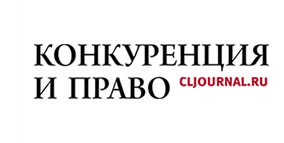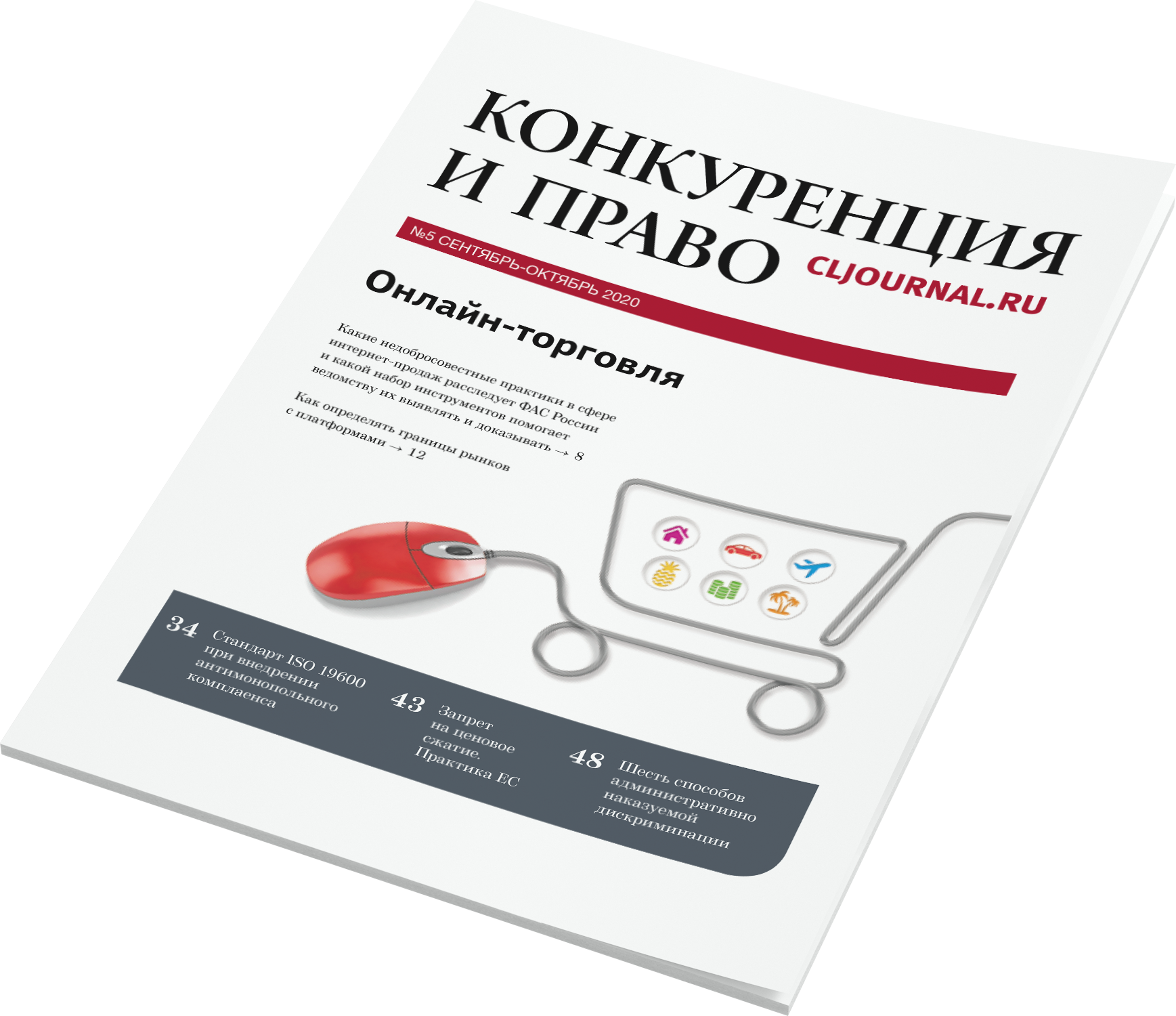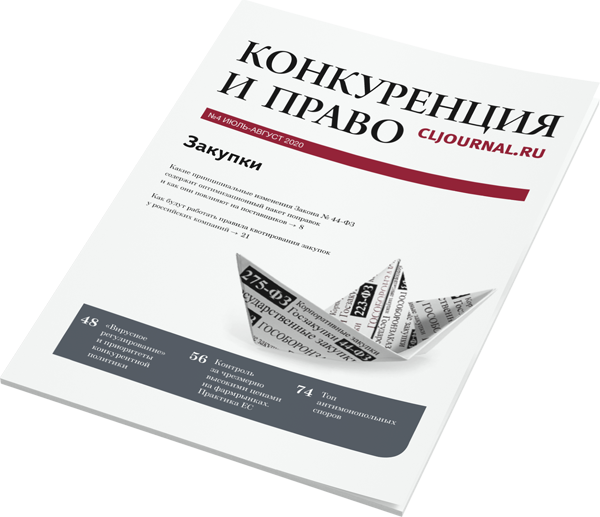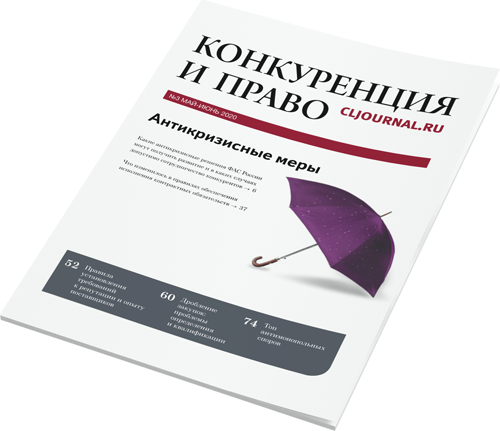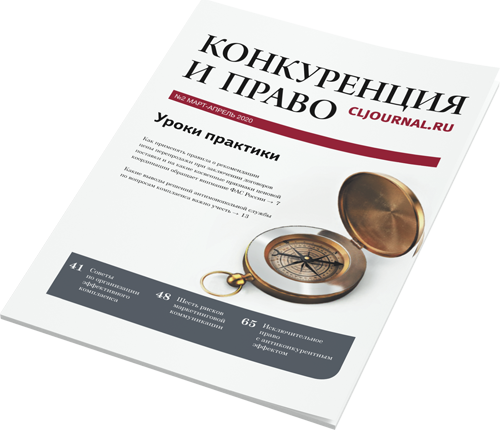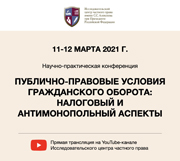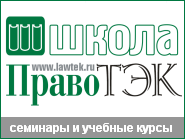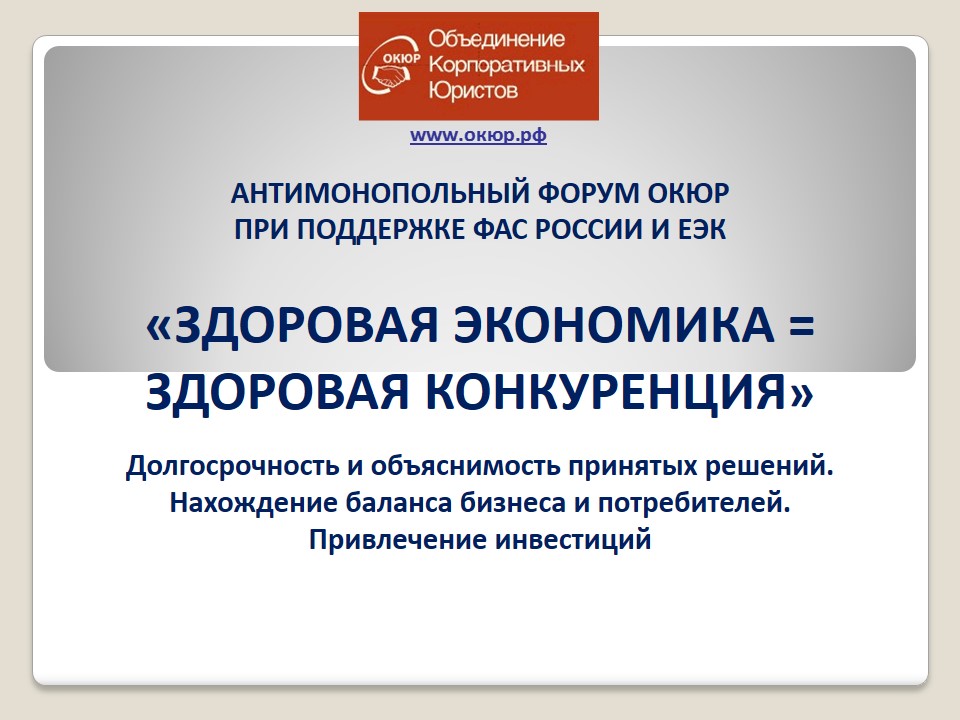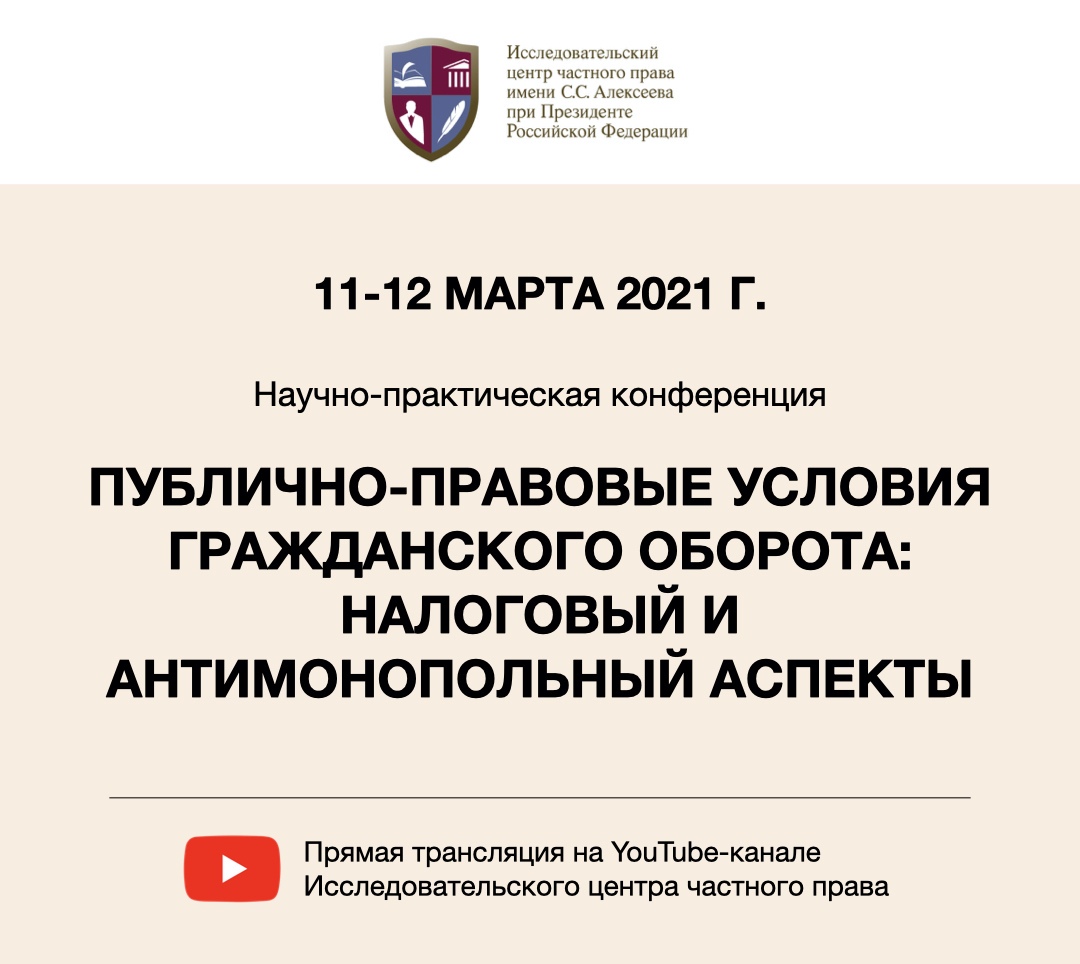|
||||||
 Published in Competition and
Law journal, Issue 6, 2018
Elena Sokolovskaya, Chief Expert of Competition and Law journal The global nature of business processes and the potential threat of anti-competitive practices of foreign entities on EAEU markets is driving the need to expand the EEC’s powers. It appears advisable to confer the right on the Commission to investigate antitrust cases involving companies registered outside the Union.
The Treaty on the Eurasian Economic Union (signed in Astana on 29 May 2014) defines the boundaries of the EEC’s supervision over compliance with antitrust prohibitions and establishes general competition principles and rules. These serve as the basis for identifying and preventing offences which are both committed in member states and adversely affect competition on cross-border markets (Section XVIII, Appendix 19). According to the Criteria for classifying markets as cross-border markets, a cross-border market is a market whose geographical boundaries cover two or more member states of the Union (the Criteria have been defined by Resolution No. 29 of the Supreme Eurasian Economic Council dated 19 December 2012). Additional conditions are singled out for various violations of the general competition rules, such as an abuse of dominance, unfair competition, and entering into an anticompetitive agreement. This allows a market to be classified as a cross-border market, with antitrust proceedings being brought at a supranational level. The EEC may initiate and consider cases on several grounds: (1) if the Commission itself has identified the signs of a violation, as well as based on the outcome of a review of applications from (2) individuals or legal entities, and (3) from competent bodies of EAEU member states responsible for protecting competition. The EAEU’s powers remain open to question when companies engaged in anticompetitive practices are registered in states other than member states of the EAEU. The Commission’s regulatory practice has not become widespread, but yet has revealed certain legal challenges in the sphere. Instances have been revealed when such companies’ practices could have had a detrimental effect on the competition of the market of the union. There are already examples of such investigations by the EEC, and the Commission has issued recommendations on how certain business practices of foreign entities could be brought into line with the EAEU’s antitrust requirements. Such recommendations were in fact of a binding nature. Meanwhile, given the current legal framework, the EEC does not have any powers to exercise control over such offenders as its competence does not extend beyond the geographical boundaries of the Union. Russian antitrust legislation has for a long time now been applying the principle of extraterritoriality, when provisions of Federal Law No. 135-FZ “On the protection of competition” dated 26 July 2006 apply to agreements and other activities of Russian and foreign entities which were made or undertaken outside Russia and which affect competition in the country (article 3(2) of the Law). It appears that EAEU should be granted powers to conduct investigations and consider cases against foreign defendants which are registered outside EAEU for such instances as mentioned above. The globalisation and integration of business may trigger a transfer of anticompetitive practices to the Union’s cross-border markets, while with wider powers the Commission will be able to identify and prevent such offences. To resolve the
predicament, amendments should be introduced into supranational competition
laws, in general, and into the Treaty on the Eurasian Economic Union and the
Criteria for classifying markets cross-border markets, in particular. 07 декабря 2018 г.
|
|

